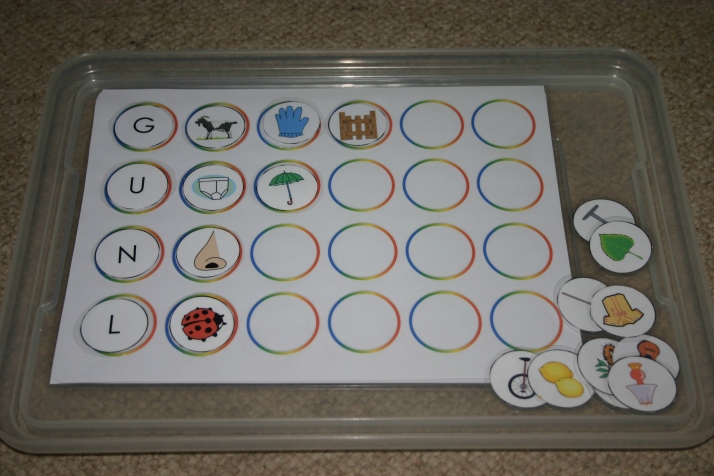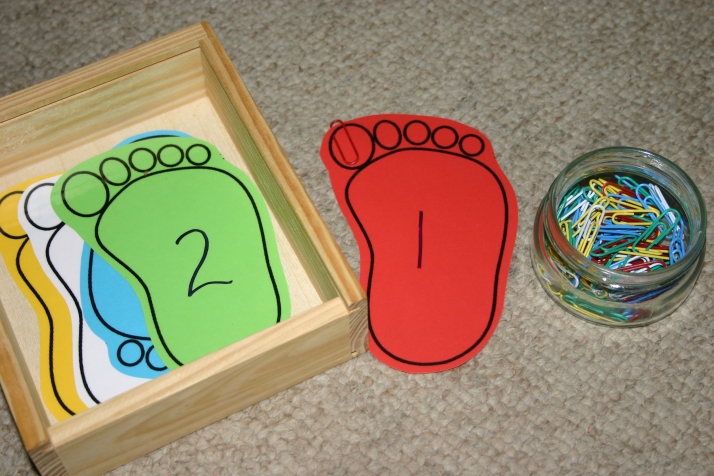Tony
Reinke / August 29, 2014
In his classic
book Mere Christianity,
C. S. Lewis delivers a profound insight into the psychological engine that
pulls along the drama of history. “All that we call human history — money,
poverty, ambition, war, prostitution, classes, empires, slavery — is the long
terrible story of man trying to find something other than God which will make
him happy.”
Yes. Or to say this even more
foundationally: the driving motive in history is the desire for happiness.
Think of it, everything from slavery to prostitution to racism to terrorism to
extortion to abortion to the ignition of world wars — it’s all driven by a
desire for happiness apart from God.
Here Lewis jabs a steel dental probe into
the raw unmedicated nerve of atheism. The serious problem with atheism is not intellectual atheism, denying
God’s existence. The real problem is affectional
atheism, finding God to be an obstruction in the path of personal
joy. This practical atheism is the fundamental root problem of humanity and it
plagues the hearts of atheists, agnostics, and even professing deists alike.
Atheists to the Core
Such a cancer in the heart can only bring
massive social consequences. By turning away from God, our pursuit of godless
joy must come at the expense of others (Psalm 14:1–4). The problem is not that
there are atheists in the world; the problem is that we all universally
identify with this atheism at the core of our motives. Every one of us is born
with a twisted desire for happiness, and that desire must come at the cost of
others.
So what happens when we seek joy and must
use someone to get it? You must oppress. You must step on toes. You must wound
and offend. And you come face-to-face and eye-to-eye with other such atheists
seeking personal happiness at your expense. You get used. Paradoxically, these
desires attract us to one another, making the impact even harder, like an
inevitable head-on collision between freight trains.
The single man who idolizes sex is
motivated to date to that end. The single woman who idolizes the attention of
men to fund her sense of self-worth is also motivated to date. When they meet,
they will use each other for their own selfish ends. It will cost a man his
flattery, it will cost the woman her body, but in the moment both seem to be a
small price to feed their own personal idols. So far everything seems peaceful.
But this idol-feeding cannot be
sustained. Eventually the man’s eyes are drawn to other bodies of other women
and un-drawn to the woman he sits across from the table right now. The flattery
will eventually be exposed to be a sham, and the woman’s body will be shown to
have been merely an object of a man’s lust. If you look deeper than the
surface, you find in this relationship two isolated sinners, atheists whose
affections are disconnected from God, and who are using one another to fill in
the gap. It will end in war.
Fight Club
Exploiting one another for personal
happiness, however subtly it appears, eventually leads to vicious personal
conflict in all of our lives. James 4:1–12 helps us understand why this happens
by asking us point blank: What causes fights and quarrels in our lives? What
fuels the flames of anger, bitterness, and wrath you feel in your heart?
The answer is not complicated. We war
against one another because our passions claw and cry for God-less joys. We
lust for the pleasures we think will bring us happiness, but we cannot have
those desires. So we murder. We covet and idolize the pleasure we think will
satisfy our soul — sex, power, wealth, fame, you name it — but we don’t get
them, they remain elusive from our clutches, and so we kill one another. We
use. We get used. We covet. We become enemies of one another. We become enemies
of God. We reject the abundant supplies God offers us for personal
satisfaction. Welcome to the fight club.
Puritan Richard Sibbes explains the
simple reason why all this holds true: “Before the heart be changed, our
judgment is depraved in regard of our last end; we seek our happiness where it
is not to be found.” In our lives, this is the tragic root problem behind the
conflicts. We are blind to what will bring our hearts the satisfaction it longs
for. We cannot see God’s beauty or enjoy the pleasures of God, so we seek to
substitute it with the pleasures of the flesh. Our hearts are so backwards they
are dead. We end up chasing the wrong end of the wrong end.
But we all chase something. That’s
Lewis’s point.
So what is a “last end”? What is my “last
end”? Puritan Richard Baxter explains. Our last end is our pleasure, our
treasure, our chief good, what we use everything else in our lives to obtain.
Our “last end” is whatever we perceive to be the best thing in the world for
us, what we principally seek in life, what we think would make us happiest to
have, what would make us most miserable to miss. It could be sex or attention
or power or fame or wealth — each of these ultimate ends exposes the practical
atheism of our hearts. Therefore, Baxter explains, “the chief part of man’s
corruption in his depraved natural state, consists in a wrong chief good, a
wrong treasure, a wrong security.”
No diagnostic question gets down deeper
into us: What’s the one thing I cannot live without?
At root, sin is not wrongdoing, it’s
wrong adoring. Sin is riveting our hearts on any treasure or security that
replaces the treasure and security we can only find in God.
Idols
Because we’re all atheists in the root
sense (blind to the abundant pleasures of God), our eyes are easily led from
one idol to another in a chase of spiritual adultery. John Calvin explains,
“Adulterers by their wandering glances, generate the flames of lust, and so
their heart is set on fire” (Ezekiel 6:9). That’s how the heart works. By
ignoring invisible God, we set our eyes on a chase for whatever we see in this
visible world. What we see around us, we hunt, and what we hunt further
inflames the lust in our heart for what we see.
This explains why idols take so many
different forms in every century or culture. An idol is sometimes a tree carved
into a lizard, gold molded into a calf, ivory shaped into a household idol, or
a magazine cover printed with an airbrushed model. Like a rock climber, our
eyes look around to find the next handhold in reach, each new hold further inflaming
the lust in our heart and propelling us toward the summit of godless
satisfaction we are drawn to pursue, but that will never actually be found. The
climb is futile because the end never arrives. The aim was wrong from the
beginning — it was the wrong mountain. And all the while, with each step, we’re
only increasing the height from which eventually we will fall.
Here we find the unending cycle of sin.
It’s ultimately deadness and blindness, seeking for worldly joys that turn out
to be futile and lead only to deeper despairs in search for new promises of
fulfillment in new forms of sexual expression or in more money or in newer
gadgets.
Totally Depraved
This clawing of a dead soul for
satisfaction in pleasures of the flesh, where lasting pleasure cannot be found,
is what Calvinists call total
depravity, the first letter in the acronym TULIP. This definition
was perceived in Scripture by Calvin himself and many before, and since in the
Puritans, the Princetonians, and Calvinists today. As John Piper says, “Total
depravity is not just badness, but blindness to beauty and deadness to joy.”
We’re not all destined to be Adolf
Hitlers, casting out suffocating oppression. For the majority of us, our powers
are too small to feed off the self-centered pleasures we can squeeze from a
nation. The degree of how depravity gets expressed varies for all of us. In
many cases, this depravity in the affections leads more to disordered thoughts
and dreams than in actual behavior. The scale of devastation differs, but our
hearts are the same.
It’s one thing to be bad; it’s wholly
another thing to be blind to good. We all experience this. This is the essence
of total depravity — it’s what makes the depravity so holistically total — we
cannot begin to imagine how that any real sense of pleasure or joy can be found
in God!
Again, back to the old Puritans, who
understood how depravity works. They said it is to have heart affections that
are “vitiated” — an arcane way of saying the affections are royally screwed up.
Depravity spoils the heart of what it was created to be and do. It’s the
thirsty man drinking down saltwater. The natural heart desires only what
dishonors God and ultimately ruins itself.
The sinner’s greatest sadness is that “he
cannot get his wicked will gratified, or his carnal affections satisfied.” When
the natural world can offer no more delights, the unnatural are pursued (Romans
1:18–32). His lusts are insatiable, and his sinful desires are never satisfied.
Thus, the reality of total depravity
lands us here. We love what destroys us; we are blind to what satisfies us.
Total depravity is the full screwing up of the soul’s affections. It is full
blindness to God’s beauty. It is full resistance of joy in God. It is the
essence of all sin.
Guilty Pleasures
The real tragedy is that it’s all a
matter of preference. “Men prefer carnal sweets before communion with God,”
writes William Bates of depravity. Talking truffles is no trifle. To be total
depraved is not to be an innocent victim of sin. And it’s not merely forgetting
God, a problem remedied by iPhone alarms or weekly church attendance. Depravity
is volitional and intentional and rebellious ignoring of God, and as such it
warrants God’s judgment. To enjoy the pleasures of the flesh over the pleasures
of God is “a sin of astonishing guilt, and not less odious to God, and damning
in its nature.”
To grab a handful of fleshly pleasure “is
death” (Romans 8:6). And there’s only one remedy to this hopeless depravity.
Rather than pursue the natural leadings of our flesh, we must pursue the
promise of eternal joy in fellowship with God (Hebrews 11:24–26).
Sin is joy poisoned. Holiness is joy
postposed and pursued. If I am to escape my lostness, God must become my
greatest treasure.
Now What?
That’s where the storyline will stop. For
now, we must simply recognize this practical atheism is quicksand. We all must
have happiness. And for sinners, we choose sin over God. Total depravity is
this desperate helplessness.
And yet, “The Lord doesn’t talk about
your sin so you’ll think your trash,” writes one modern-day Calvinist. “He
talks about it just because you’re not. He talks about it because he made you
in his own image, with an infinitely higher and brighter plan for you than the
one you chose for yourself.”
This is the plot twist. God reveals
depravity to break those he is leading to true joy. But in light of the human
tragedy called total depravity, such a brighter plan seems rather impossible
apart from some kind of bold divine infringement on my pursuits. If I am to
life, something or someone must override me. Someone must break me.
Calvinists throughout the centuries know,
to find joy, someone must batter my heart and ravish my affections. Someone
must turn my gaze away from idols and overwhelm me with a greater beauty.
Posts in the “Happy Calvinist” series:
Sources: C. S. Lewis, Mere Christianity (HarperCollins: 2001), 49.
Richard Sibbes, The Complete
Works of Richard Sibbes (Edinburgh: 1862), 1:181. Richard Baxter, The Practical Works of the Rev. Richard
Baxter (London: 1830), 7:39. John Calvin, Commentary on the First Twenty Chapters
of the Book of the Prophet Ezekiel (Edinburgh: 1849), 231. Ralph
Erskine, The Practical Works of
the Reverend Ralph Erskine (Glasgow: 1777), 1:390. George Swinnock,
The Works of George Swinnock
(1868), 4:486. William Bates, The
Whole Works of the Rev. William Bates (Harrisonburg, VA: 1990),
2:221, 2:258. D. Clair Davis, “Personal Salvation,” in The Practical Calvinist: An Introduction
to the Presbyterian and Reformed Heritage In Honor of Dr. D. Clair Davis,
Peter A. Lillback, ed. (Mentor, 2002), 28.







 by
by 






 I found these plastic tiles at an op shop. I have no idea what their original use was, however they link together nicely for this number sequencing activity. Having 3 colours meant I could quickly separate out only the 1 to 10 blocks, then add the 11 to 20 and finally 21 to 30 as they were able to complete the “path” as we called it. I provided a coloured number strip to use as a guide while they were still learning the numeral sequence.
I found these plastic tiles at an op shop. I have no idea what their original use was, however they link together nicely for this number sequencing activity. Having 3 colours meant I could quickly separate out only the 1 to 10 blocks, then add the 11 to 20 and finally 21 to 30 as they were able to complete the “path” as we called it. I provided a coloured number strip to use as a guide while they were still learning the numeral sequence. 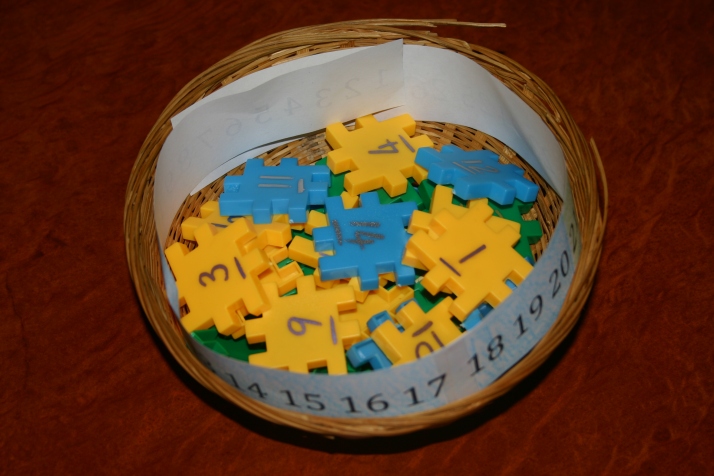
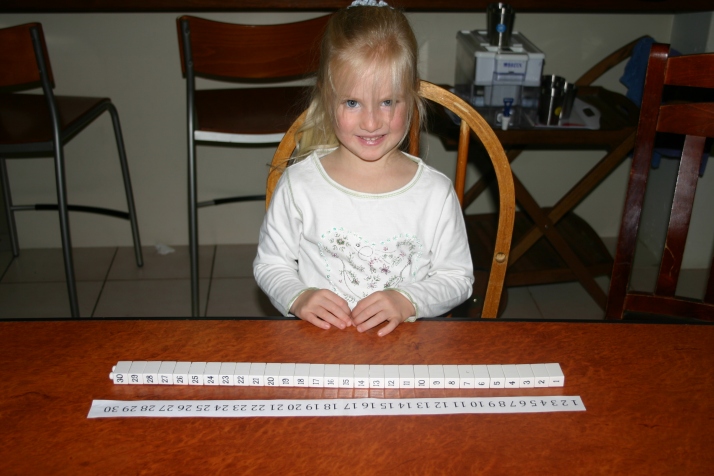



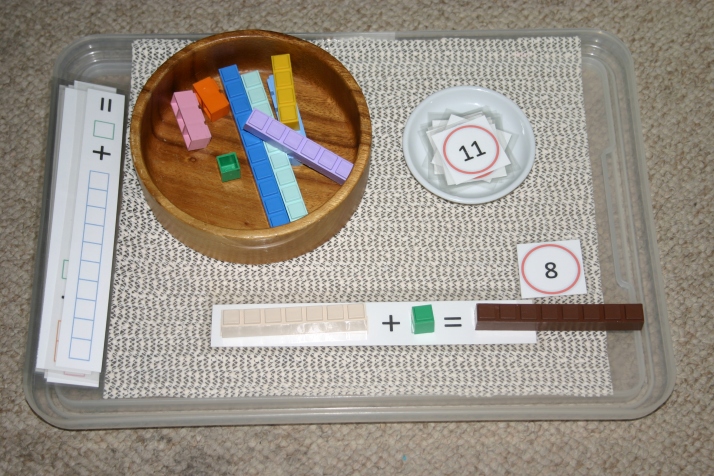 Another Mathusee based activity; basic addition facts using the manipulatives and numeral answers. The number strips I have out at the moment are plus 1 and plus 2. Learning basic addition facts now will help with more difficult mathematical skills later on. Click the links below for
Another Mathusee based activity; basic addition facts using the manipulatives and numeral answers. The number strips I have out at the moment are plus 1 and plus 2. Learning basic addition facts now will help with more difficult mathematical skills later on. Click the links below for 




